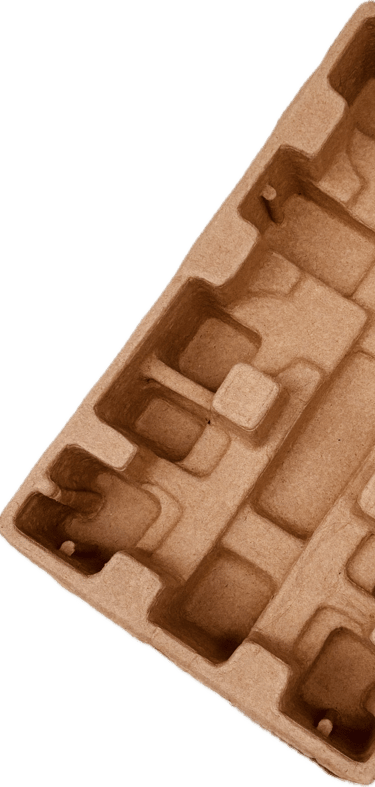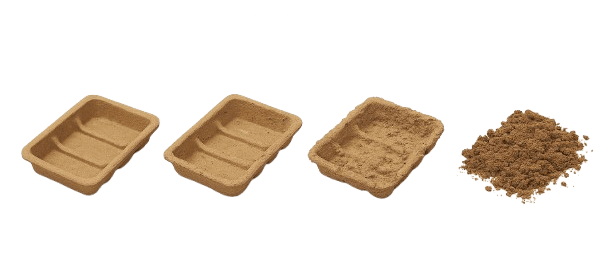

Moulded
Moulded Pulp Packaging
is an eco-friendly, biodegradable, and recyclable packaging solution made primarily from recycled paper, cardboard, or other natural fibers. It is designed to protect products during storage and transportation while significantly reducing environmental impact compared to conventional plastic or Styrofoam packaging.
Pulp
Packaging
Key Advantages
Sustainable: 100% biodegradable and compostable.
Protective: Excellent cushioning and shock absorption for fragile products.
Customizable: Tailored to fit specific product dimensions and branding.
Cost-Effective: Competitive with plastic packaging when produced at scale.
Environmental Impact
Unlike single-use plastics, moulded pulp packaging decomposes naturally in a few months and can be easily recycled into new paper-based products. It aligns with global sustainability goals and India’s push towards eco-conscious manufacturing.
Bio-degradability . . .
A moulded pulp tray typically takes 2 to 6 months to fully degrade under normal composting or natural environmental conditions, depending on factors like:
Climate & Moisture: Warm, humid environments speed up decomposition.
Thickness of Tray: Thicker industrial trays may take closer to 6 months; thin fruit trays can degrade in under 2 months.
Composting Conditions: In an active compost pile, breakdown can be as fast as 30–45 days.
Exposure: Sunlight, rain, and microbial activity all accelerate the process.


Material Degradation Time Environmental Impact Recyclable/Compostable
Moulded Pulp 2–6 months Breaks down naturally, enriches soil ✅ Yes – 100% ♻️ recyclable & compostable (30–45 days in composting conditions)
Plastic (PET/HDPE) 450–1,000 years Persistent pollution, harmful to wildlife, Some types recyclable, not compostable microplastics
Styrofoam (EPS) 500+ years (never fully biodegrades) Highly polluting, toxic when burned, ❌ Very rarely recyclable, not compostable takes huge landfill space
